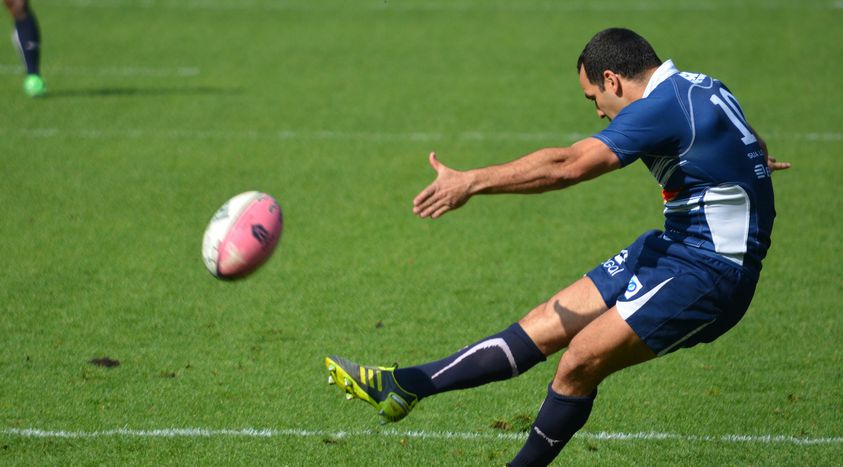
Rugby world cup : Haughty Frenchy ?
Published on
At the eve of the world cup championship, the infatuation of French people for rugby has suddenly exploded. The effusion of the press and of public leaders could even be compared to the liberation of an unspoken passion. At the eve of the world cup championship, the infatuation of French people for rugby has suddenly exploded.
The effusion of the press and of public leaders could even be compared to the liberation of an unspoken passion.
Faithful to its reputation of arrogant lady France has, in a day, suddenly presented itself as the legitimate ambassador of the “ovalie”, forgetting on its way that rugby was founded by an Englishman, Sir William Webb Ellis in 1823. These last few months, it wasn’t rare to hear or to read that “the French players were among the best in Europe” or that “the French team was, with no doubt, THE favourite European team”. These comments would have certainly been accurate some ten years ago, but they sound distressful today. To my humble opinion, this unprecedented support for the XV de France hides an affective hypocrisy that could only damage the image of French rugby. Once despised and considered as a brutal practice, rugby is now under the spotlights, and its players almost sacred as semi God. Such weirdness leaves me doubtful of the spontaneity of the public demonstrations we can attend today.
Loving rugby is cultural.
In France, and contrary to England or Scotland, rugby is more a “local” sport than a national one. It is in the South west that the identity of rugby finds its roots. French rugby was raised in this region and was nourished with its long going values and traditions, both inherited from a specific sociological background. Among these values, one could cite a strong collective spirit, the attachment to sports’ tradition, patrimonial transition, personal challenge, … The “rugby spirit” was then exported. Local teams gathered themselves behind the Nation so as to play with “the big ones”. This explains that there cannot be a proper “national involvement” in this game. Moreover, institutional recognition by the French rugby federation (FRF) came very late as the FRF, which was founded in 1910, was only registered on the IRB (International rugby board) in 1978.
Both media concern and change in public opinion perception were hard to come. Though, listening to Claire Chazal, PPDA and other broadcasters, it seems that French people have always believed in this sport and supported their team … But this is nothing more than buzzing.
For sure, rugby is fashionable. It’s been a couple of years since inscriptions in clubs dramatically increased and sports’ stores enlarged their “rugby” spots. But the most freaky is to see how much stemming goods exploded, rejoicing the marketing society. Just like soccer, which has been absorbed by advertisement and sponsoring strategies, rugby has been “seduced” by all this “show-off”. The Franco German TV channel Arte broadcasted an excellent report on that issue last September 4th (“Révolution ovale”). This documentary shows how “mediatisation” or “popularisation” of rugby, which is to say the broadening of its public, has modelled a new sport. More than a practice, the “ovalie” has become a label, which symbolic power has been biased to reach people’s sensitiveness. Just like a luxury product that they would like to bring to an upper standard, sponsors have stressed the gentleman side of the game to better sell its recent mediatisation. But the most worrying is that players themselves have surrendered to these rules. This came to such a point that the game itself is starting to change. The adoration of bodies and hyper proteined diets have modelled both the physical aspect of rugby players and the way of playing… Nowadays, Haka is even more popular than the New-Zeland team itself…
What would we be ready to do to please people? Is rugby ready to sell its soul to the devil ?!
Sophie Helbert



